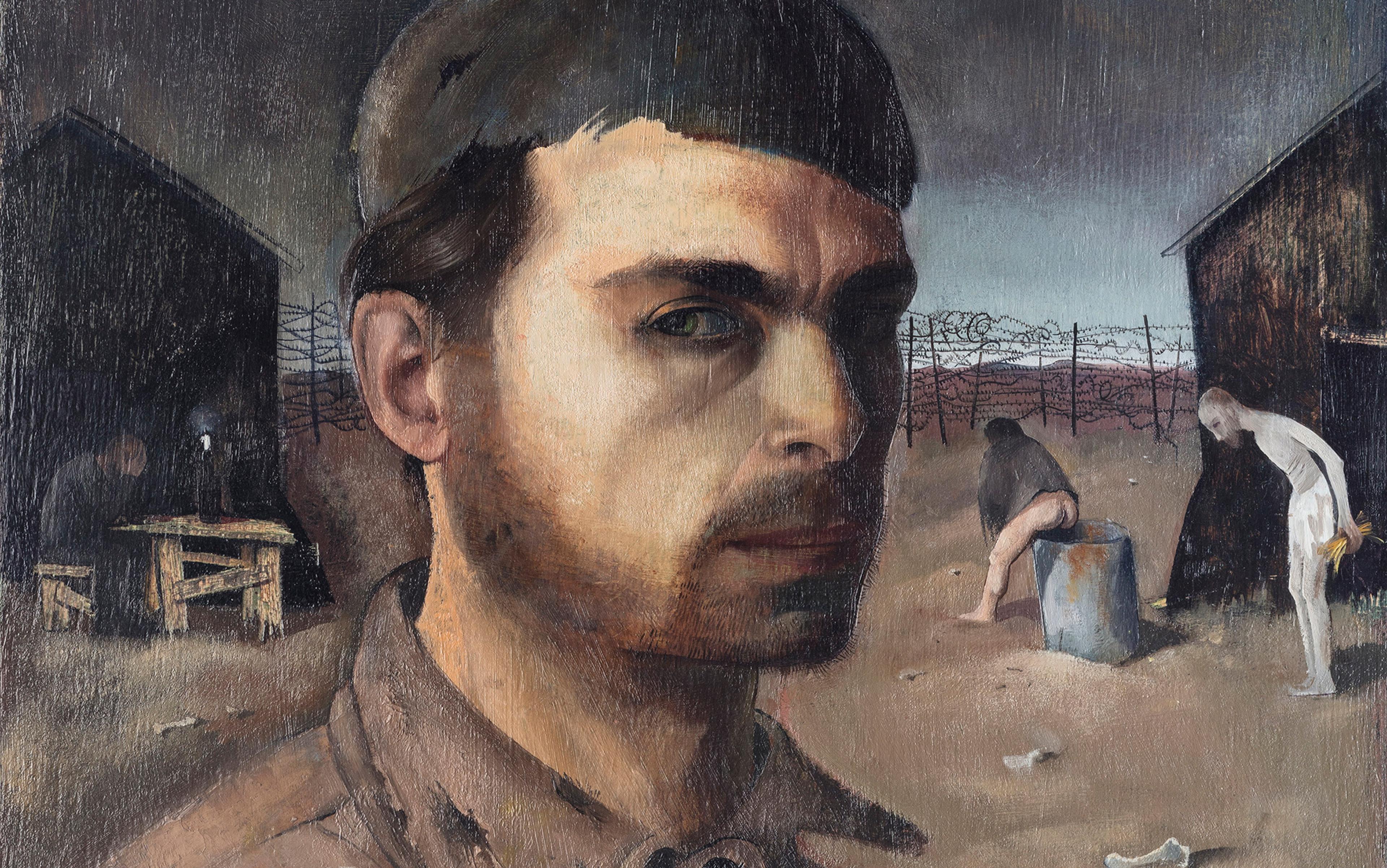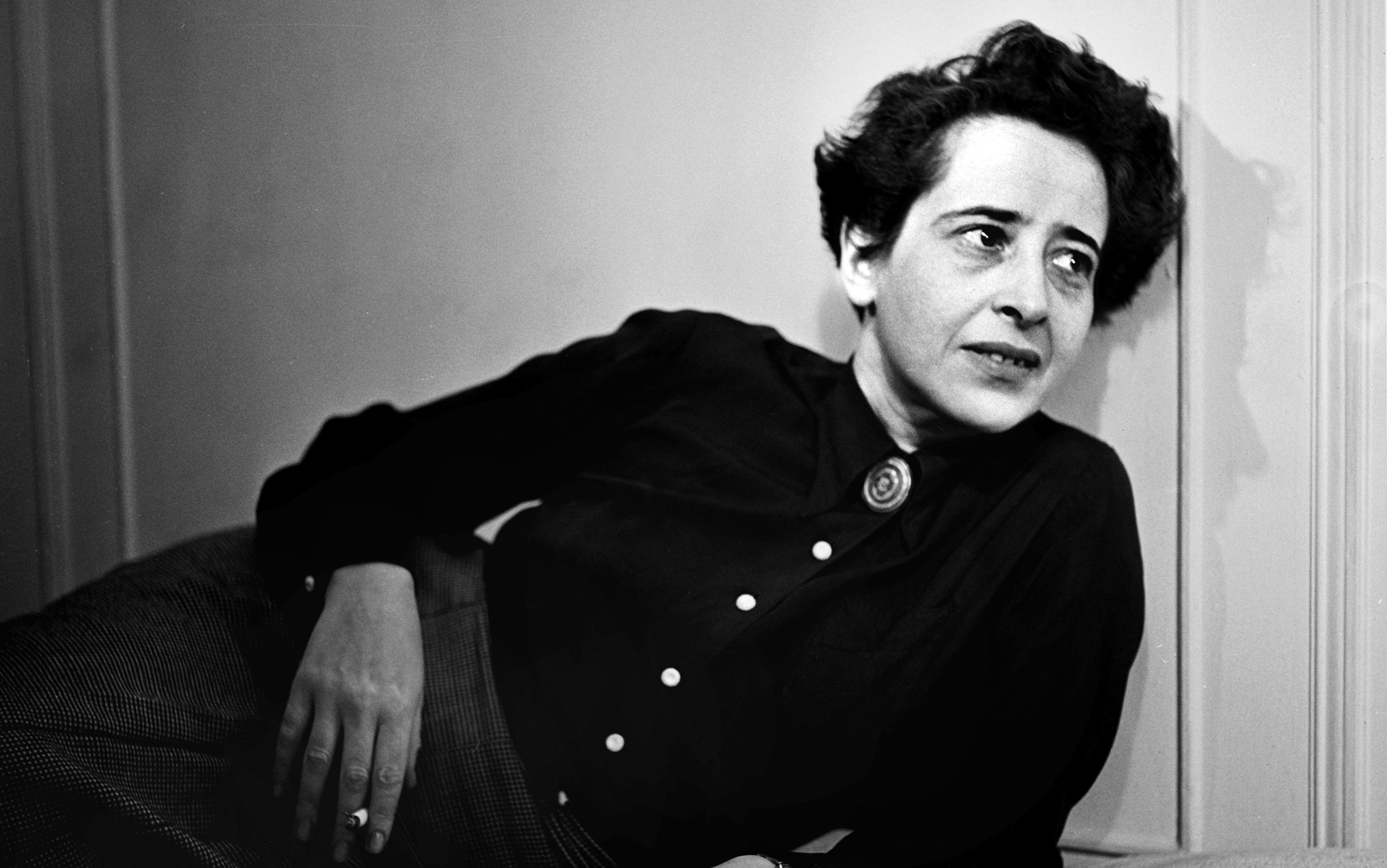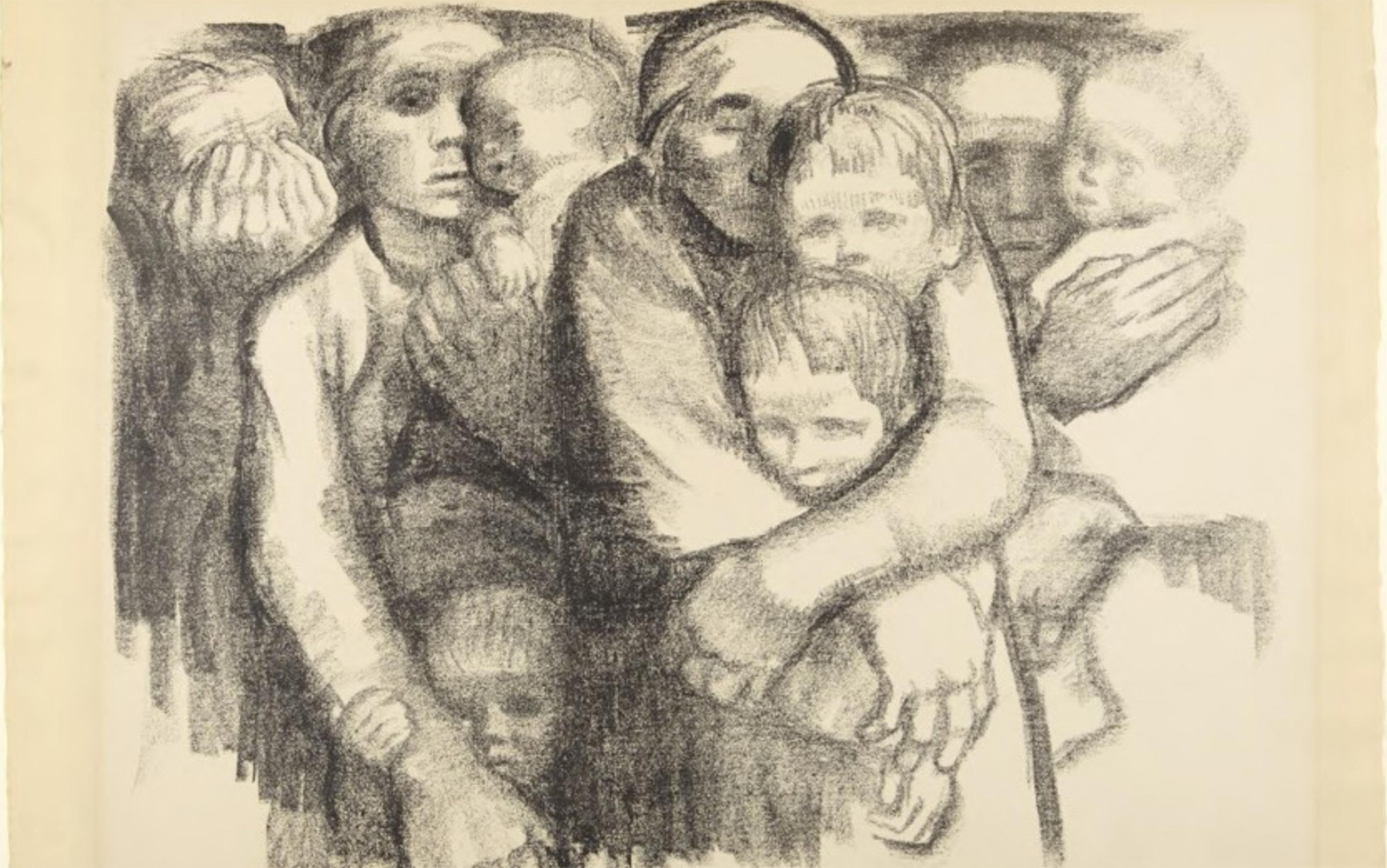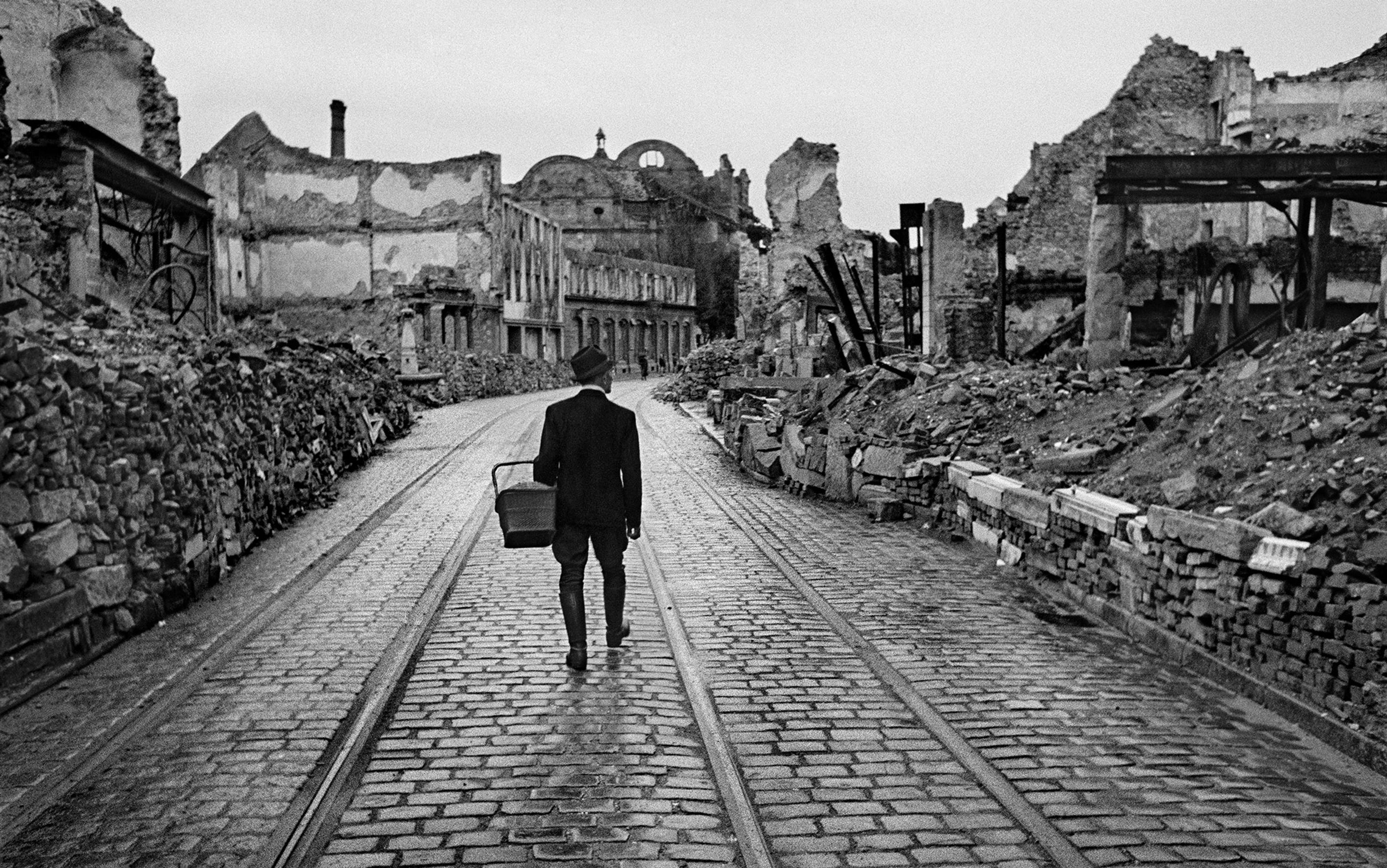When I consider my hand
– A foreign thing related to me –
I stand in no country,
I am neither here nor there
I am not certain of anything.
So begins one of Hannah Arendt’s poems, written in the summer of 1924 after her first year of study at the University of Marburg in Germany with the philosopher Martin Heidegger. The poem, titled ‘Lost in Myself’, reflects upon a feeling of self-alienation. It is that feeling of self-alienation when one is unsure of anything, let alone themselves.
From a young age, Arendt wrestled with the tension she felt between who she really was and how others perceived her. Young, brilliant and visibly Jewish, compared with her German classmates, she felt like she was different. It’s not difficult to imagine the young Arendt, living alone, refusing to attend morning classes, studying Homer in the afternoons for fun. Publicly, she was a star, delighting in the attention she received from her classmates and professors for her beauty and brilliance. But privately, inwardly, she was shy and more comfortable alone with herself.
After the death of her father when she was seven, Arendt spent the better part of her childhood in his library. By the time she was 14, she had read the philosophical works of Immanuel Kant, the writings of her future professor Karl Jaspers on the Psychology of Worldviews, and taught herself Greek and Latin. By the age of 18, away at college, hiding in the library was no longer an option. She was actively wrestling with what it meant to become a person in the world, with her loneliness, and a feeling that there was something more inside herself. What does it mean to make something of oneself, to become a somebody rather than a nobody? ‘Is it more than I am? Does it have higher meaning?’ she asks of her hand, the hand that would go on to write some of the finest work of political theory in the 20th century.
What does it mean to discover one’s true, authentic self? To act from a place of authenticity? Is there a truer self within the self that can be uncovered? What are we really talking about when we talk about authenticity?
Authenticity emerged as a philosophical concept from Heidegger’s Being and Time (1927), published in the aftermath of the Great War. Heidegger’s work attempted to recover Being from the ordinariness of everyday life in which people exist in the world with others. For him, most of our everyday existence is inauthentic, because being in the world with others turns us away from being with our true selves, our true selves who are unaffected by the world.
For Heidegger, there was a difference between what is translated as ‘Being’ (with a capital B) and ‘being’ (with a lower-case b). This distinction does not indicate a transcendent Being, the way capitalising the ‘g’ in God does, but rather the fact that one is not always merely a being among beings. Or, to put it another way, Being means that there is a truer version of the self, a more authentic version, that can be experienced only when one steps out of the flow of everyday life, what Heidegger called ‘everydayness’. And when we experience this Being, we do not just experience our common lives, we experience everything that being human means – including our own inevitable death, that part of ourselves – our nonexistence – that otherwise remains hidden from our consciousness.
The authentic self is the self that has broken away from the herd; it is the self that exists for the self alone
The German word for everydayness is Alltäglichkeit, which means ‘commonplace’, ‘ordinariness’ and ‘banality’. In the word Alltäglichkeit, der Alltag (‘the everyday’) gives one the sense of recurrence and routine. It is a singular noun that confers a sense of not being able to distinguish one day from the next – wake up, go to work, go home, watch television, go to bed. One might think of it as the repetitious and often boring reality that many of us live in, day to day. But this everydayness is an inescapable part of life. Everyone experiences it. And for Heidegger this meant that if we spend most of our time in the everydayness of being, where our routines are shaped in large part by the society we live in, the habits of people we spend time with, and political institutions that govern life, then we must necessarily forget a part of ourselves. It is easy to slip into a routine way of being, forgetting that one ever made a choice to live a certain way at all. And moreover, for Heidegger, this meant that one could not understand the full nature of Being by examining everyday life alone. So, he developed the concept of authenticity against this everydayness in order to try and capture a full portrait of the self.
So, what is authenticity?
If the inauthentic self is the everyday self, the one among the many, the authentic self is the self that has broken away from the herd; it is the self that exists for the self alone. To step out of the flow of everyday life is an exceptional occurrence. Common wisdom stipulates that ‘We are what we do’ or ‘We are the sum total of our actions.’ Each choice shapes the future path we find ourselves on, and occasionally we step back and can see the whole picture of ourselves, how we got to where we are. But for Heidegger we are most fully ourselves only in those moments of exception, in that clearing of Being when we’ve left the well-worn path carved out by everyday routine altogether. The German word he uses for authenticity is Eigentlichkeit, which is defined as ‘really’ or ‘truly’. Eigen means ‘peculiar’, and ‘own’ or ‘of one’s own’. Literally, it might be translated as possessing the quality of being truly for oneself. Or, colloquially, today we might say something like ‘being true to oneself’. In those moments of exception, when one fully experiences the truth of themselves, they are apart from the herd, alone in their Being. And in this way, Heidegger’s notion of authenticity is a very lonely concept. It is to allow oneself to experience for a moment the terrifying aloneness of nonexistence – one’s death – while still alive.
Against this notion of Heidegger’s lonely authenticity, which became the foundation for German existentialism, Jaspers offered another understanding of what it meant to be conditioned by the world of everydayness. Jaspers was a professor at the University of Heidelberg who moved from psychology to philosophy when he was nearing 40. They were both concerned with the meaning of Being, but they approached the fundamental question of human existence quite differently. Heidegger wanted to understand all that could be known about Being, whereas Jaspers was more interested in what could not be known. As the Jaspers scholar Carmen Lea Dege put it in Psyche in 2020: ‘Jaspers is one of the very few existentialist thinkers who did not seek to master, tame or conquer the unknowable and finite condition of human life.’
Jaspers’s Philosophie (1932), published on the cusp of the Second World War, laid out his Existenzphilosophie. While he did not consider it to be ‘existential’, it was concerned with the question of what it means to live authentically. Heidegger sought authenticity in being alone, away from the corrupting influence of others, but for Jaspers we can only ever exist in the world with others, which meant that any conception of freedom has to be conditioned by the principle of being with others in the world. Since nobody exists alone, ever, our authentic self must be understood always and only in relationship to others and the world we live in. Jaspers’s argument was particularly significant given the political context of the day, which called upon human beings to confront the terrifying political reality they faced. A reality in which ‘Thou shalt not kill’ became ‘Thou shalt kill.’ One was left with their inner compass to decide how to act when the chips were down.
Arendt turned to the concept of the will in order to think about how one decides to act in the world
In the midst of the Second World War, French existentialism emerged out of German existentialism. If authenticity was a question of being for Heidegger and a question of freedom for Jaspers, for Jean-Paul Sartre, Simone de Beauvoir and Albert Camus it became a question of individual ethics. The underlying question shifted from ‘What is the meaning of Being?’ to ‘How should I be?’ The credo underpinning Sartre’s work – ‘existence precedes essence’ – meant that we are thrown into the world without any fixed substance, and this meant that we get to choose who we become. While philosophers like Thomas Hobbes and Jean-Jacques Rousseau tried to capture human nature by imagining what life was like before society, for Sartre, there is no human nature. We must always be imagining and reimagining who we are, which is to say we are always in the process of becoming. For Beauvoir, becoming was a creative enterprise, a work of art. And she argued that it was not enough to shape oneself within the existing conditions of the world, but that one must also shape the conditions of the world itself. Authenticity for the French existentialists was not about uncovering a pre-existing true self, but rather choosing to engage in a process of becoming.
Caught between German and French existentialism, Arendt offered a critique of authenticity in her final unfinished work, The Life of the Mind. In place of authenticity, Arendt turned to the concept of the will in order to think about how one decides to act in the world. A student of Heidegger and Jaspers, and a fellow traveller of Sartre, Camus and Beauvoir from 1933-41 during her years of exile in Paris, Arendt rejected the idea that a true self exists within the self. She was not a transcendental thinker. For her there was no capital-G God, and there was no capital-B Being. In place of an inner-authentic self, she argued that the inner organ of decision-making that guided one’s actions was the will.
Following the work of St Augustine and Jaspers, Arendt turned Heidegger on his head and argued that all thinking moves from experience in the world, not from Being. By arguing that thinking was a function of Being, Heidegger had tried to divorce thinking from the will in order to argue that it was one’s true inner Being that determined ultimately who they became in the world. But for Arendt, this was an abdication of personal responsibility and choice. It was a way of handing over one’s decision-making power. And for her, it is only the choices that we make in real time when confronted with decisions that determine who we will become, and in turn determine the kind of world that we will help to shape.
So, what is the will? And is it a persuasive alternative to authenticity?
Unlike ‘authenticity’, ‘willing’ is not a very desirable word. First of all, it’s not a thing one can possess, it’s an action, something one has to do. And unlike authenticity, there is no sense of comfort in ‘the will’. Authenticity promises certainty, whereas the will promises uncertainty. And in times of turmoil, it is all too human to prefer that which promises predictability to the unknown. Colloquially, willing usually appears around New Year’s Eve when people start talking about resolutions and how they’d like to change their lives. The will becomes a question of ‘willpower’. Or worse, willing can remind us of those difficult times when someone implores us ‘Are you willing to cooperate?’ ‘Are you willing to try?’ ‘Are you willing to do what it takes to get the job done?’ But for Arendt, the will was the means to our freedom, it was the promise that we can always be other than we are, and so to the world. The will is a space of tension inside the self where one actively feels the difference between where they are and where they would like to be.
The will is the only intervention we have against the conditioning of worldly existence
Willing is the mental activity that goes on between thinking and judgment. It has the power to shape us by drawing us into conflict with ourselves. Without inner conflict, there is no forward movement. These are the basic principles of willing:
- Willing is characterised by an inner state of disharmony.
- Willing is experienced as a felt sense of tension within the body where the mind is at war with itself.
- Willing makes one aware of possible decisions, which creates a feeling of being pulled in multiple directions at once.
- Willing can feel very lonely. Decisions and choices are shaped by one’s environment, by the everydayness of being, but ultimately the responsibility for deciding is up to oneself.
- Willing makes one aware of the tension that exists between oneself as a part of the world, and oneself as an individual alone existing in relationship to the world.
- Willing is the principle of human individuation.
- Willing relates to the world through action.
- The will is the inner organ of freedom.
Everyone makes hundreds of decisions a day, but most of the time they aren’t conscious of the decisions they are making. Their decisions are not subjected to the will. Instead, they are simply following a routine of patterns that have been formed over time. In order to engage the will, one must be willing to pause. Because, while thinking moves from past experience, and imagination fixates on what might happen in the future, the past and the future are beyond the reach of the will. Willing is what happens before one acts. To be in a state of willing is to be in the Now.
Authenticity is attractive in part because it promises a sense of harmony, it is the promise that, if we know who we are, then we can act in a way where our actions are in alignment with our values. But the will is characterised by a sense of conflict. It is the inner organ that generates tension within the self, making one aware of the discrepancies between who they are and who they might like to be, or what they want and what they might be able to have. But it is this tension that is vital for bringing consciousness to decision-making.
For Arendt, we are never alone, even when we are alone by ourselves
Arendt borrowed the idea that the inner feeling of conflict was the will itself from St Augustine’s work in his Confessions, which tried to understand why people choose to sin. Choice, Augustine argued, was ultimately a question of habit and company. We imitate the behaviour of those we spend time with, and those behaviours become habits. The will is the only intervention we have against the conditioning of worldly existence. But that means every time we choose to act one way, we are choosing not to act another way. Every I will is also an I nill. And because of this, for Arendt, the will is the inner faculty of autonomy and freedom, not authenticity. Authenticity, at least in the sense Heidegger used it, would be too close to some sort of human condition before God gave man free will.
The will is the gift of choice that means we are free to decide.
There is no true self inside the self. There is only the conflict of the will and how we decide to resolve it. It is human to reach for security in a time of unknowing. It is human to hope for a sense of direction in a time of uncertainty. Maintaining this inner friction of the will is the means to freedom, no matter how uncomfortable and frustrating it might seem at times. No matter how much we would just like someone else to decide for us, even occasionally. Because beyond the question of the self, what Arendt saw in Heidegger’s lonely concept of authenticity was an understanding of Being that was world-denying. For him, the freedom of authenticity could only be experienced alone, away from the world of being with others, whereas for Arendt we are never alone, even when we are alone by ourselves.
The following summer, Arendt returned home to Konigsberg where she penned a youthful self-portrait titled ‘Shadows’. She made two copies and slipped one in the mail to Heidegger. This is how she described herself:
Her independence and idiosyncrasy were actually based in a true passion she had conceived for anything odd. Thus, she was used to seeing something noteworthy even in what was apparently most natural and banal; indeed, when the simplicity and ordinariness of life struck her to the core, it did not occur to her, upon reflection, or even emotionally, that anything she experienced could be banal, a worthless nothing the rest of the world took for granted and that was no longer worthy of comment.
Heidegger responded by telling her that her shadows were the foundation of her soul. He writes:
Your startling admission will not undermine my belief in the genuine, rich impulses of your existence. On the contrary, for me it is proof that you have moved into the open – although the way out of such existential contortions, which are not really yours, will be long.
A few months later, Arendt went to study with Jaspers at the University of Heidelberg. She cut her hair, started smoking, and found a group of friends. She found stillness in her solitude, and a sense of self-belonging in Heidelberg, as she learned to keep company with herself in the quiet moments. She would always be different, but instead of experiencing her difference as something that isolated her from others, it became the foundation for how she came to love the world of being with others. Loving the world, she realised, was a choice, and an act of willing, and the beauty of being together is that one is always coming undone in the dance of knowing and unknowing.






